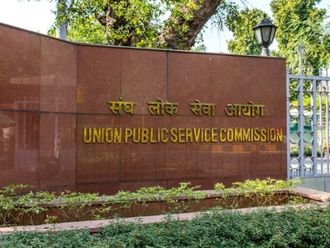The $64 question is how Hamas, the Islamic Resistance Movement, will manage the next stage of its electoral victory, first, in running the Palestinian National Authority (PNA) and, secondly, and which is more troublesome, its relationship with Israel and the West.
Various ideas from varied Hamas leaders have surfaced but none seem to satisfy key Palestinians or other Arab regimes in the region.
Many office holders are still ill at ease with the unexpected success of a radical Islamic movement, the first to land in the seat of power as a result of a highly-praised, clean and fair election monitored by many international observers.
True, Hamas has only attained 44 per cent of the popular vote, but because of an electoral quirk, some candidates were running on a national slate while others on local districts, the Islamist movement managed to win 74 seats in the 132-member Palestinian legislature, thanks to the voting in the districts.
Hamas's dilemma over its next step is echoed by Israel as well as the European Union and the United States, reportedly the sources of most of the funding for the PNA, which oversees the welfare of some 3.7 million Palestinians, many of whom are refugees. The PNA lacks unhampered access to the outside world since Israel controls most of Palestinian borders save for the new Rafah crossing and banking transactions.
In a meeting this week in Washington between Jordan's King Abdullah and Israeli Foreign Minister Tzipi Livni, the Jordanian monarch stressed the importance of dealing with the new realities in Palestine and promised that Jordan will deal with the new Palestinian government once it is created.
He advised that one should await the programme of a Hamas-led government before making judgments, an indirect blow to the overblown trepidations voiced by Western and Israeli leaders and US opinion writers.
Thanks to several American academicians and former government officials, among them Professor Nathan Brown and Robert Malley who served in the Clinton White House, a new awareness has been injected into the raging debate here.
Hamas's earth-shaking victory in the parliamentary election was attributed primarily to the continued Israeli occupation of the Palestinian territory and less than to the corruption of the discredited Fatah movement.
Strict interpretation
The much-anticipated Hamas views are also anxiously awaited by Palestinians themselves. They, too, have been assured by some Hamas leaders and others that Hamas's platform was for "change and reform" and not for imposing a strict interpretation of Islam on a generally secular population.
The other side of the coin is not altogether clear. It would be likewise helpful, for example, if Israel would define, once and for all, her ideas about its borders, something sorely missing since the founding of the Jewish state in 1948. Equally lacking is an Israeli constitution which would guarantee equal rights to all, unlike the present status of the over one million Palestinians living in Israel who are treated as second class citizens.
A Palestinian-American organisation has recently come up with a thought-provoking document "Vision of Palestine", describing what their homeland should ultimately look like after the end of Israeli occupation in the West Bank, Gaza Strip and East Jerusalem.
The organisation hopes that these ideas, spelled out in a full page advertisement in The New York Times (a summary of the document was featured in Gulf News yesterday) would initiate a debate among Palestinians "on such issues as the political composition of the state, religious, minority and women's rights and economic opportunity."
The lengthy statement, issued by the American Task Force on Palestine (ATFP), underlined "strongly that independence from occupation is not an end in itself and that statehood should provide the means to truly liberate the Palestinian people and restore their national dignity".
On the ticklish issue of the Palestinians' "right of return", ATFP's statement was straightforward: "Palestine should serve as a haven for Palestinian refugees from around the Middle East and the rest of the world.
Negotiations between the elected leadership of Israel and the Palestinian people will have to arrive at a mutually agreed solution for implementing the rights of the refugees for return and compensation as outlined in United Nations Resolution 194. Whatever the outcome of these negotiations, Palestine should open its doors to refugees from around the region and stand prepared to provide various forms of vital assistance to Palestinians wherever they may be."
The road ahead for Hamas remains murky but with foresight and international goodwill, the Palestinians should be able to come up with a workable solution.
Israel shares a great responsibility here and it, too, should not be pressured at this stage until the national elections, which are in March.
George Hishmeh is a Washington-based columnist.








